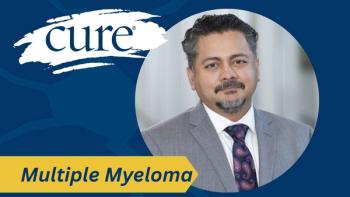
Minimal Residual Disease is A Vital Marker for Patients with Multiple Myeloma, Says Expert
Dr. Parameswaran Hari discusses the importance of understanding a patient’s MRD if they are receiving the maintenance therapy Sarclisa for multiple myeloma.
Data presented at the 2020 ASCO Virtual Scientific Program demonstrated that the maintenance therapy Sarclisa (lenalidomide) improved progression-free survival in patients with multiple myeloma. However, according to Dr. Parameswaran Hari, more research is needed to assess the impact minimal residual disease has on patients receiving Sarclisa.
In an interview with
Transcription:
So, we have now randomized discontinuation studies going on in the U.S. right now. I'm involved with a study called the SWOG-1803 study, where we actually stratify patients at two years of maintenance based on whether they're minimal residual disease negative or not, and then we use that. If you’re minimal residual disease negative, you stop maintenance in a randomized fashion, (meaning) half the people stop (and) half the people continue. And if you’re minimal residual disease positive, then you actually continue on maintenance.
So that's the one way; and in this study, we don't have MRD at three years. We do have MRD at baseline and immediately after transplant, and at one year, etc. But we don't have it at the time that they were coming off of study. But that would be an interesting analysis that we hit. This was a substudy that went along with the study and that analysis will also be published later.
So, that'll also (show) us some light. The big question is 60%, who stopped lenalidomide maintenance, were still progression free at six years. All those people who are MRD negative, that's a good question. And the other 80%, it is very clear that there is some benefit if you look at the population as a whole, without additional predictors like MRD you really should be staying on lenalidomide.




